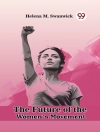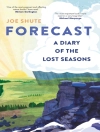‘The Voice of the People’ presents a series of essays on literary aspects of the European folk revival through the eighteenth and nineteenth centuries. Its approach is both topical and generic, addressing not just the question of what purposes the folk revival served but also its many forms and genres. It focuses on two practices of antiquarianism, namely the key role that collecting and editing played in the formation of ethnological study in the European academy, and the business of publishing and editing that produced many ‘folkloric’ texts of dubious authenticity. Collecting and editing went hand-in-hand with plagiarism and forgery in the practice of many: much English, Scottish and Irish folk-song is of late-eighteenth century literary origin. Across Europe, too, national literary identities were often based on origins supposedly discovered in the people, but which were frequently the stuff of fiction. As was the case with Russian and Czech folklore, an interest in the folkloric was often successfully hybridised, with, for example, a continuing emphasis on classical patterns instructing the creation of vernacular art forms. In Germany, debate about the folk served the purposes of a radical writing in a time of successive political upheavals.
In addition to exploring these tendencies, ‘The Voice of the People’ also presents readings of various genres: epic, song, tale and novel. It contributes to the study of several crucial European literary figures, from Macpherson and Percy, Herder and Burns, to Heine, Pushkin, Moore and Morris. But most of all it concerns the great anonymous authors of the European folk tradition – in narrative and lyric art – and their relation to the cultural movements and imagined identities of the peoples of the emerging nineteenth-century European nation.
‘The Voice of the People’ offers an original take on folklore revivals through its attempt to integrate British examples of the literary and antiquarian uses of folk art with a strong account of comparable movements in Europe.
قائمة المحتويات
List of Figures; Introduction – Michael Perraudin and Matthew Campbell; 1. The Impact of Ossian: Johann Gottfried Herder’s Literary Legacy – Renata Schellenberg; 2. On Robert Burns: Enlightenment, Mythology and the Folkloric – Hamish Mathison; 3. The Classical Form of the Nation: The Convergence of Greek and Folk Forms in Czech and Russian Literature in the 1810s – David L. Cooper; 4. Literary Metamorphoses and the Reframing of Enchantment: The Scottish Song and Folktale Collections of R. H. Cromek, Allan Cunningham and Robert Chambers – Sarah M. Dunnigan; 5. Thomas Moore, Daniel Maclise and the New Mythology: The Origin of the Harp – Matthew Campbell; 6. The Oral Ballad and the Printed Poem in the Portuguese Romantic Movement: The Case of J. M. da Costa e Silva’s Isabel ou a Heroina de Aragom – J. J. Dias Marques; 7. Class, Nation and the German Folk Revival: Heinrich Heine, Georg Büchner and Georg Weerth – Michael Perraudin; 8. The Estonian National Epic, Kalevipoeg: Its Sources and Inception – Madis Arukask; 9. The Latvian Era of Folk Awakening: From Johann Gottfried Herder’s Volkslieder to the Voice of an Emergent Nation – Kristina Jaremko-Porter; 10. From Folklore to Folk Law: William Morris and the Popular Sources of Legal Authority – Marcus Waithe; 11. Pioneers, Friends, Rivals: Social Networks and the English Folk-Song Revival, 1889–1904 – E. David Gregory; 12. The Bosnian Vila: Folklore and Orientalism in the Fiction of Robert Michel – Riccardo Concetti; Epilogue The Persistence of Revival – Matthew Campbell and Michael Perraudin; Bibliography; Index
عن المؤلف
Matthew Campbell is Professor of English at the University of York.
Michael Perraudin is Professor of German at the University of Sheffield.












